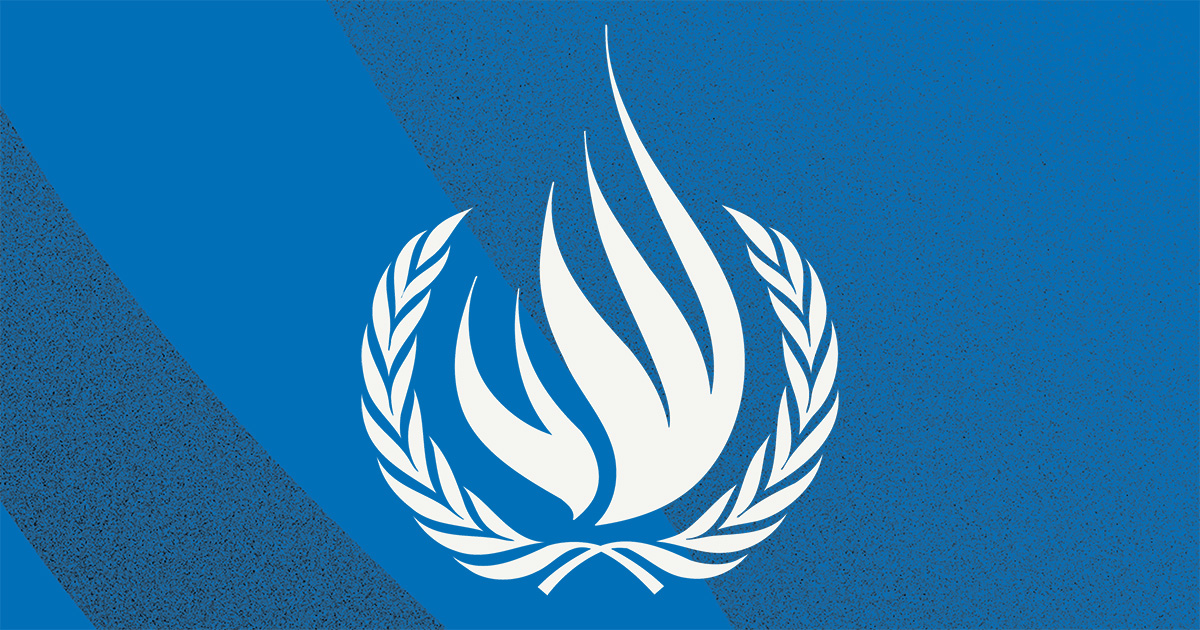
GENEVA (18 June 2024) – The Taliban’s pattern of systematic violations of women’s and girls’ fundamental rights has intensified, causing immense harm, spanning generations and all elements of society in Afghanistan, a UN expert said today.
“The Taliban’s institutionalisation of its system of oppression of women and girls, and the harms that it is continuing to entrench, should shock the conscience of humanity”, said Richard Bennett, UN Special Rapporteur on the situation of human rights in Afghanistan, who presented his latest report to the Human Rights Council, speaking alongside Afghan women. “These violations are so severe and extensive that they appear to form a widespread and systematic attack on a civilian population which may amount to crimes against humanity. This attack is not only ongoing, it is intensifying.”
Bennett called on the Taliban to take immediate steps to reverse their system of gender oppression that deprives women and girls of their fundamental rights.
The Special Rapporteur also urged an “all tools” approach to challenge and dismantle the Taliban’s institutionalised system of gender oppression and to hold those responsible to account.
This approach includes the use of international accountability mechanisms such as the International Criminal Court and the International Court of Justice, as well as pursuing cases at the national level under the principle of universal jurisdiction.
He also recommended Member States take up the concept of gender apartheid and support its codification, having heard Afghan women state that this term best describes their situation.
Bennett said it is essential that Afghan civil society, including women human rights defenders, are meaningful participants in the UN meeting of Special Envoys on Afghanistan in Doha at the end of this month and that women’s and girls’ rights are addressed both directly and within thematic discussions.
“Improvements in human rights are fundamental to a way forward for an Afghanistan at peace with itself and its neighbours. Failure to discuss this issue would undermine both the credibility and sustainability of the process,” the expert said.
Concrete, measurable, and verified improvements on human rights should take place before any normalisation or legitimation of the de facto authorities in Afghanistan, Bennett said.
“Afghans, in particular Afghan women and girls, have shown tremendous bravery and determination in the face of Taliban oppression. The international community must match this with protection and solidarity, including decisive and principled action, which places human rights front and centre,” Bennett said.
Mr. Richard Bennett is the United Nations Special Rapporteur on the situation of human rights in Afghanistan. He officially assumed duties on 1 May 2022. He has served in Afghanistan on several occasions in different capacities including as the Chief of the Human Rights Service with the United Nations Assistance Mission in Afghanistan (UNAMA).
The Special Rapporteurs are part of what is known as the Special Procedures of the Human Rights Council. Special Procedures, the largest body of independent experts in the UN Human Rights system, is the general name of the Council’s independent fact-finding and monitoring mechanisms that address either specific country situations or thematic issues in all parts of the world. Special Procedures experts work on a voluntary basis; they are not UN staff and do not receive a salary for their work. They are independent from any government or organisation and serve in their individual capacity.
UN human rights country page: Afghanistan
For further information and media requests, please contact hrc-sr-afghanistan@un.org
For media inquiries related to other UN independent experts, please contact Dharisha Indraguptha (dharisha.indraguptha@un.org) or John Newland (john.newland@un.org)
Follow news related to the UN’s independent human rights experts on Twitter @UN_SPExperts.









